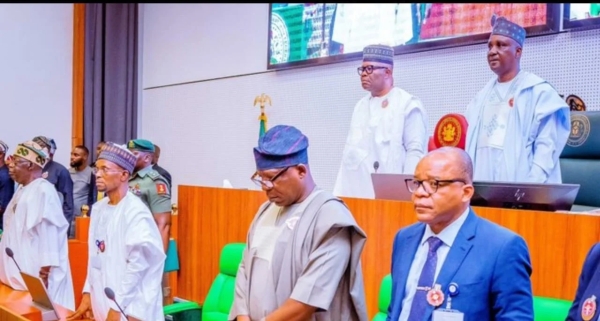The Socio-Economic Rights and Accountability Project (SERAP) has asked the national assembly to disclose the total amount paid to lawmakers as “running costs”.
Recently, there has been public discourse on salaries and allowances of the 469 members of the house of representatives and senate.
Last Wednesday, Kawu Sumaila, senator representing Kano south, told BBC Hausa that he receives N21 million monthly as “running costs”.
Sumaila said the salary of a senator is about N1 million.
The senator’s comment came days after former President Olusegun Obasanjo accused federal lawmakers of fixing their salaries and allowances — a claim the senate has denied.
In a statement on Saturday, Kolawole Oluwadare, SERAP’s deputy director, asked the leadership of the national assembly to “promptly disclose the exact amount of the monthly running costs of millions of naira currently being paid to and received by members of the national assembly and the spending details of any such running costs”.
He said the alleged practice of paying money meant for “running costs” to the personal accounts of lawmakers amounts to corruption, which should be investigated.
“The allegations that members of the national assembly are fixing their own salaries, allowances and running costs are entirely inconsistent and incompatible with the constitutional oath of office and the object and purpose of the UN convention against corruption to which Nigeria is a state party,” the statement reads.
“We would be grateful if the recommended measures are taken within seven days of the receipt and/or publication of this letter.
“If we have not heard from you by then, SERAP shall take all appropriate legal actions to compel you and other members of the national assembly to comply with our request in the public interest.
“Accounting for and returning any misused or mismanaged running costs collected by members of the national assembly would build trust in democratic institutions and strengthen the rule of law.
“Accounting for and returning any misused or mismanaged running costs collected would also enhance the ability of the lawmakers to effectively and efficiently discharge their constitutional and statutory responsibilities.”


